

Illinois Baptist






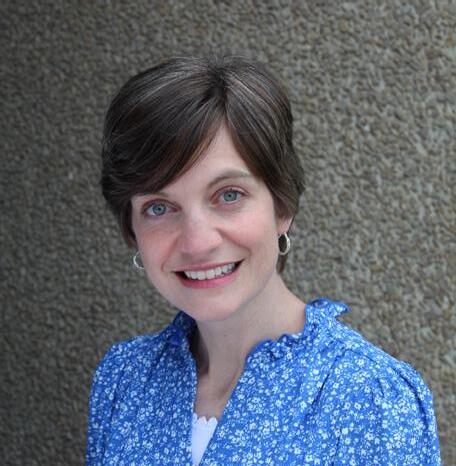


P.
Drake Caudill
P. 13
FOR THE PASTOR Hero lessons
Michael Awbrey
P. 15
Orland Park | When Illinois Baptists gather this November at Ashburn Baptist Church in the southwest Chicago suburb of Orland Park, they will experience something new. The 2024 IBSA Annual Meeting and Pastors Conference will feature a condensed two-day format, making the midweek event briefer and easier to attend for pastors and church messengers.
The program for the unified gathering will continue to highlight the dynamic preaching that Pastors Conference attendees have come to expect, featuring five messages from respected national ministry leaders Brian Croft, Mark Croston, and Jeff Iorg as well as Illinoisans Bruce Kirk and Michael Nave. Additionally, the new format will include 20 helpful, ministry-oriented breakout sessions for pastors, pastors’ wives, church planters, and other leaders, led by Croft, Croston, Nave, and others.

“I’m really glad for the return of the breakout sessions,” said IBSA Associate Executive Director Paul Westbrook. “When I served as a pastor, I always felt like breakouts helped me grow to the next level as a leader and provided me with tools that I could take back

Total giving by IBSA churches as of 8/31/24 $3,179,490
2024 Budget Goal to date: $3,559,681
2024 Goal: $6 Million
NATE ADAMS
Holding the rope right here
The story is told of William Carey, pioneer English missionary of the late 18th and early 19th centuries, who before traveling to India told Andrew Fuller, “I will go down into the pit, if you will hold the ropes.” Because Fuller and others supported and advocated for him back home, Carey was able to accomplish his mission on the other side of the world.
Southern Baptists have made theological education a priority since the Cooperative Program was established in 1925. The unified giving plan includes 22% of CP funds marked for training pastors, church staff, and missionaries. Today, 18,000 students are training at six seminaries. Tuition is usually half the cost of other similar institutions.
Impact global give local
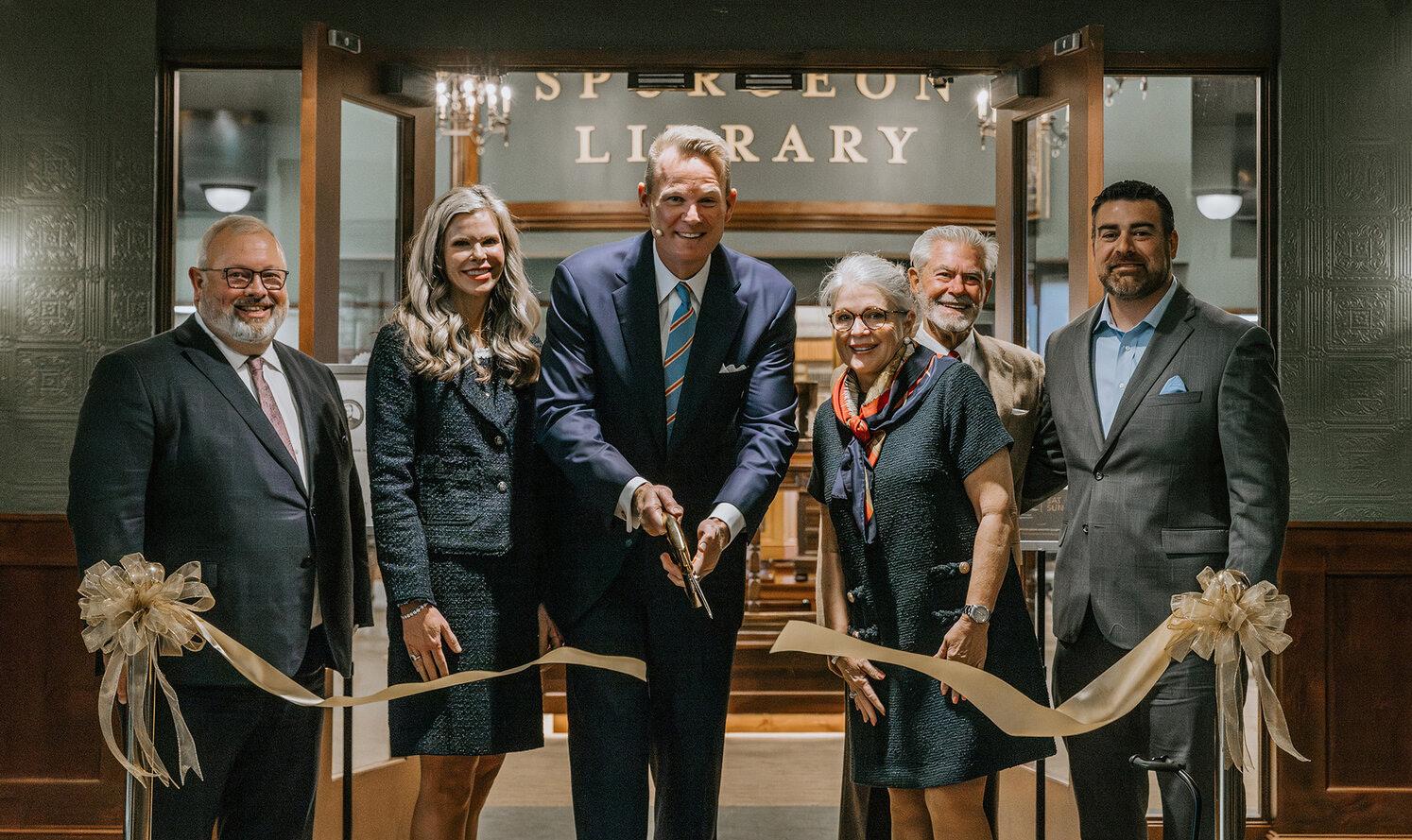
Midwestern Baptist Theological Seminary in Kansas City was founded in 1957. The enrollment has grown through all 12 years of Jason Allen’s presidency, now at a high of 5,200. MBTS is home to a vast collection of writings and documents from C. H. Spurgeon. It boasts a cohort of Spurgeon scholars who study from these original documents. And the undergraduate school is named Spurgeon College. “Midwestern Seminary is reaching the world,” Allen told SBC messengers in Indianapolis in June.

The Illinois Baptist
staff
Editor - Eric Reed
Graphic Designer - Kris Kell
Contributing Editor - Lisa Misner
Comm. Coordinator - Nic Cook
Graphics Assistant - Makayla Proctor
Team Leader - Ben Jones
The general telephone number for IBSA is (217) 786-2600. For questions about subscriptions, articles, or upcoming events, contact the Illinois Baptist at (217) 391-3127 or IllinoisBaptist@IBSA.org
The Illinois Baptist is seeking news from IBSA churches. E-mail us at IllinoisBaptist@IBSA.org to tell us about special events and new ministry staff.
POSTMASTER: The Illinois Baptist is owned and published every month by the Illinois Baptist State Association, 3085 Stevenson Drive, Springfield, Illinois 62703-4440. Subscriptions are free to Illinois Baptists. Subscribe online at IBSA.org.
The phrase “holding the rope” is also reminiscent of newly converted Saul’s escape from his Damascus enemies in Acts 9. Because other disciples lowered him in a basket through the city wall, Saul was able to continue boldly sharing Jesus across the known world. Rarely can missionaries be effective unless someone is holding the other end of the rope.
During this September season of focus on Illinois missions, you might expect me to say that your state missions staff needs your church to hold the rope while we do missions on your behalf. And to some extent that is true. But in our missionary work together here in Illinois, I think it’s more accurate to think of our staff holding the ropes so that hundreds of missionary churches can share Jesus in their own communities and beyond.
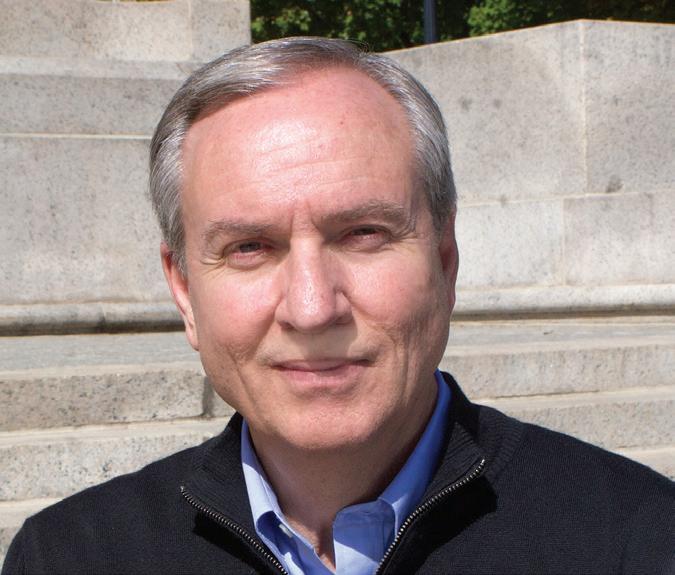
Today those ropes are often invisible, but they are just as real and supportive. Think of them as the wireless signal that allows you to make a phone call, or send a text or e-mail, or access immediate help 24/7 through an Internet connection. Your church is ready to boldly go into some ministry or missions challenge, or face the struggle to get unstuck, or navigate some difficulty or even crisis. But you need someone to hold the rope on the other end.
Because our state staff across Illinois is only about 30 people serving almost a thousand churches, we all feel the tugs of those invisible ropes almost every day. And we love it.
We love it because we love the Lord, and we love his Kingdom, and we love his mission, and we love his churches. We love you. And we are committed to being there at the end of that invisible or figurative rope, and to being there in person whenever we can, helping your church thrive, or survive, or revive in its mission and in its unique setting. Maybe your church wants to make disciples more effectively, or connect with a new missions project, or develop stronger leaders, or reach the next generation. Maybe it needs to solve a problem that has you puzzled, or needs help navigating a crisis. Our end of the rope received all those tugs, just this week.
What all our churches really need now
To be transparent, many of us who work in state missions miss being at the church’s end of the rope all the time. We remember fondly what it was like to pastor a church or teach a Sunday school class or plant a church or be a missionary. But because we’ve experienced some of those things, we know how important it is to have trustworthy people at the other end of the rope.
Like you, we’ve all needed trusted friends of shared biblical belief who can help with timely resources, solutions, encouragement, ideas, prayer, or simply their presence. So, we’re honored to be those trusted friends holding your rope, even when you may feel like you’re at the end of it.
With today’s economic and cultural challenges, I can’t recall a year when your state missions offering is more needed. You can learn more online at missionillinois.org. If your church isn’t receiving a formal offering at this time, you can give securely there too. Why? Because we are committed to being right here with you, holding the rope.
Nate Adams is executive director of the Illinois Baptist State Association. Respond at IllinoisBaptist@IBSA.org.


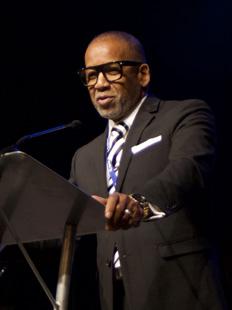
and put into practice at my church.”
Westbrook is organizing the slate of breakouts to strengthen churches.
In addition to the two days of preaching and worship, ministry breakouts, and reporting and business sessions, Illinois Baptists will also have the opportunity to stay a third day and take part in a Chicago prayer tour or mission project in cooperation with the Send Relief Chicago Ministry Center and the Chicagoland Baptist Association.
The move to the new streamlined format comes as a result of messenger and church feedback received by the Order of Business Committee, which plans and evaluates the annual gathering. The Committee regularly heard that many messengers had difficulty attending all three days of the meeting and would prefer a condensed schedule and expedited business.
Following the 2023 meetings, the Order of Business Committee worked with elected IBSA Officers, Pastors Conference leadership, and Association staff to develop a combined program intended to inspire and edify both pastors and messengers while also conducting the necessary business of the statewide association of nearly 900 cooperating churches. The IBSA Board approved the new plan at their March meeting, moving the official dates of the meeting to Tuesday and Wednesday, November 12-13.
Full details for the meeting, including schedules, speakers, additional gathering opportunities, and registration information, can all be found at IBSAnnualMeeting.org.
‘Blessing’ collection
Familiar buckets become boxes for children, migrants, and church plants
Orland Park | When messengers from Illinois Baptist churches gather for the IBSA Annual Meeting Nov. 12-13, they will be encouraged to bring supplies for a variety of Chicago area ministries. If the mission project seems familiar, it is. Previously featuring multi-colored five-gallon buckets, the collection is now called “Blessing Boxes.” The switch is because square boxes are more efficient to transport, but the goal is the same, bless ministries with the supplies they need.
“Churches have responded so well the past two years,” said Shannon Ford, IBSA Missions Director. “We’re excited to bless some Chicago area ministries with what they need to restock their supplies as they serve needy families this fall and winter.”
The supplies list includes school supplies, diapers, wipes, hygiene items to make personal care kits, half-gallon and gallon-size Ziplock bags, socks, toboggan style winter hats, and gloves. (And did we mention socks!)
“We are partnering with the Send Relief ministry center in Chicago and the Chicagoland Baptist Association to provide items that their partners use to meet needs and show compassion in Christ’s name,” Ford said. Items will be distributed through the Send Relief center and partners like the Starting Point Community Church migrant ministry.

“Baptists like to collect things,” IBSA Associate Executive Director Mark Emerson once observed, and we’re good at it. Especially when the collection blesses children and churches and helps spread the gospel.
Stay over, plan your return
On the day after the Annual Meeting, Thursday, Nov. 14., messengers are invited to stay over for Serve Day. “We are organizing five ministry projects and five vision and prayer tour opportunities to allow messengers to see the needs and serve before heading home,” Ford said. Ford and IBSA Church Planting Director Kevin Jones are working with Qusai Mahmud and Jason Stuckey of Send Relief to coordinate this effort to bless Chicagoland Baptists and their partners.
At the Thrive ’24 website, there is a full list of meeting events, breakout sessions, and lodging options for the far south Chicago suburbs. For more visit IBSAAnnualMeeting.org.



Four churches have expressed their desire to join the Illinois Baptist State Association. Their leaders have completed paperwork to become “cooperating churches” and have provided information to the IBSA Credentials Committee on their congregation, including their adherence to the Baptist Faith and Message, planned financial support for Cooperative Program, and evidence of democratic processes in the selection of church leaders.
The churches will be presented for affirmation by messengers at the IBSA Annual Meeting November 12-13. They are
• All Peoples Fellowship, Carol Stream
• Manchester Baptist Church, Manchester
• Redemption City Church, Rockford
• River Church, Cahokia Heights

IORG KIRK CROFT
Ashburn Baptist Church | Nov 12-13
the briefing
Illinois’ own Reagan

A biopic about Illinois native son Ronald Reagan hit theaters Aug. 30. Dennis Quaid plays the Dixon-born man who became President in 1980 and ushered in a new era of conservative government. His two terms also marked a period when Christian perspectives were welcomed in the public square. Reagan was delayed from its 2023 planned release by Covid and later by the actors’ strike. Reagan’s mother, Nelle, is credited with his spiritual foundation. “Reagan’s faith was integral from childhood on,” screenwriter Howard Klausner explained. “It wasn’t just politically expedient. The man believed in the Lord, and that belief guided him throughout his life. To leave that out wouldn’t be true to who he was.”
—Christian Post
The Forge debuts well

The Kendrick brothers’ latest movie had a strong opening weekend at box offices nationwide, bringing in $6.6 million, according to reports. The Forge came in fifth overall in box office ticket sales between Aug. 23-25. The film is a sequel of sorts to their 2015 release War Room. It features Cameron Arnett from previous Kendrick film Overcomer, and Bible teacher Priscilla Shirer playing twin sisters, one from War Room. “With each one of our movies, we’re hoping that people fall more in love with the Lord, that they experience healing in their own personal lives…” Stephen Kendrick said. “But we know that God can use film to communicate the powerful truths of the Gospel and God’s Word in people’s lives. That is more rewarding than any kind of applause of man that comes and goes 15 minutes later.”
Lifeway Christian Resources has teamed up with the Kendrick brothers to provide a suite of new resources to accompany the movie.
—Baptist Press
Survey: What draws Christians together
Evangelicals have different reasons for liking “church” than other groups
Philadelphia | A sense of community and belonging inches out shared spiritual beliefs and faith as a church draw for all groups but Evangelicals, the American Bible Society (ABS) said in its latest release from the 2024 State of the Bible.
Of the respondents in the study who attend church, 55% said they do so because of a feeling of community and belonging, followed by 53% who attend because of shared spiritual beliefs and faith, and 51% because of meaning and purpose.
But two-thirds of Evangelicals (66%) are drawn to church by a shared sense of faith, ABS reported.
Even with our differences, it’s mostly about belonging.
Participants in Mainline Protestant churches are most likely to identify a feeling of community and belonging (63%) as a draw, while active Catholics are more likely than other groups to be drawn by cultural or family tradition (43%).
Less than half of all respondents combined (48%) said worship and ceremonies draw them to church.
“The top answers, for both positive and negative responses, are about belonging. When churchgoers feel that they belong, they participate more,” said John Farquhar Plake, ABS chief innovation officer and State of the Bible editor-in-chief. “And when they feel excluded by cliques, they drift away. So, what can your church do about that? This new chapter (of the study) offers a few ideas.”
A sense of community and belonging is still a top draw among Evangelicals at 60%, joined by worship and ceremony at 60%, and meaning and purpose at 57%.
Falling below 50% for Evangelicals are religious education and learning (47%), community service and outreach (36%), culture or family tradition (20%), and conversion or religious experience (17%). The aspects are also less than top draws for other denominations cited in the findings.
Among other responses from the 2,506 people contacted (with 58% responding):
› 20% or 50 million people said a feeling of exclusion or the presence of cliques within faith communities deterred their participation.
› 19% said the church judged or condemned their lifestyle choices, a feeling more common among Gen Z and Millennials (23% and 24% respectively).
› 12% are deterred by unresolved conflicts within faith communities.
› 5% said they haven’t felt safe in church or the faith community, most common among Gen Z (8%).
Denominations seemed equally impacted by adverse perceptions that drive away attendance, researchers said, with the exception of 15% of Evangelicals and 14% of Mainline Protestants who cited conflicts within faith communities that were not resolved satisfactorily, compared to 8% of historically Black denominations and 6% of Catholics.
Active church volunteers more often expressed a feeling of community and belonging than non-volunteers (68% to 55%) researchers said, and also expressed a deep care for those communities they actively support.
The study was conducted online in January 2024 among adults in all 50 states and the District of Co-
How volunteers see church
64% value worship and ceremonies
Compared to 21% of non-volunteers.
20% experienced unresolved conflict
Compared to 10% of non-volunteers.
lumbia. Additional results from the findings will be released monthly through December, focusing on the Bible’s impact in restoring hope; spiritual nones and nominals; loneliness and the Bible, philanthropy and other topics.
The fifth chapter is available for free download at sotb.research.bible.

Diana Chandler for Baptist Press
Religious freedom
New abortion laws could impact hiring by pro-life ministries
New statutes could force churches, pregnancy centers to hire abortion advocates
Springfield | The Illinois General Assembly continues to find new ways to further enshrine abortion into law. Within the last month, Governor J.B. Pritzker signed one bill requiring insurance companies to provide full coverage for abortions and a second bill making abortions a protected human rights issue. The actions came just ahead of the Democratic National Convention in Chicago where the party emphasized its commitment to “reproductive rights” and a mobile Planned Parenthood mobile unit performed vasectomies and provided abortion services nearby.
The Birth Equity Act requires both private and Medicaid insurance in the state to cover the cost of abortion procedures without requiring any copays or deductibles. The coverage also includes medication abortions. House Bill 4867 (HB 4867) amended the state’s Human Rights Act to “prohibit discrimination based on reproductive health decisions,” according to a media release from the governor’s office.
sions and communicate their messages by hiring and retaining people who wholeheartedly support and share the organization’s mission and message.”
He said, “HB 4867 destroys that essential freedom.”
High profile abortion state

Illinois has become among the highest profile abortion states in the nation. Planned Parenthood Great Rivers (PPGR), representing the St. Louis region and southern Illinois, sent a mobile abortion unit to Chicago for two days and stationed it within a few blocks of the United Center, where the Democratic National Convention was held. PPGR reported eight medication abortions and nine vasectomies were provided at no cost.
In contrast, the neighboring state of Iowa enacted a six-week abortion ban in late June. And Illinois’ other neighboring states—Indiana, Kentucky, Missouri, Tennessee—have strict bans against abortion.
lenges to our laws that preserve Illinois as an oasis of reproductive health care,” said Raoul.
Raoul lost a court case last year, when a federal judge blocked a law that would have allowed him to
On the rise
Abortions are up in Illinois since the Dobbs decision.
60% increase in clients from 16 surrounding states that limited the procedure starting two years ago.
fine pregnancy resource centers up to $50,000 per incident for pro-life speech deemed deceptive regarding abortion in a counseling setting.
Since the U.S. Supreme Court’s decision to overturn Roe v. Wade, pro-choice Illinois lawmakers have promoted abortion access in the state which saw nearly 91,000 abortions reported in the calendar year 2023—a 60% increase over 2022.
“Forcing people or organizations to violate their religious beliefs is unconstitutional and has no place in our society,” said Greg Baylor, Alliance Defending Freedom (ADF) Senior Counsel. “We are disappointed to see this dangerous legislation signed into law, as it plainly violates the First Amendment freedoms of pro-life employers in Illinois.”
Kevin Carrothers is executive director of the state’s Baptist Children’s Home and Family Services (BCHFS) based in Carmi, which includes Angels’ Cove Residential Maternity Home and GraceHaven Pregnancy Resource Clinic, both in Mt. Vernon. Carrothers is also a former practicing attorney. He expressed his disappointment that the bill contained “no religious exemptions.”
“It’s certainly a whole new dynamic,” Carrothers said. “It impacts all of us. It is going to impact churches.”
The bill’s definition of reproductive health decisions includes “healthcare related to the continuation or termination of pregnancy...” By including “termination of pregnancy” in the definition, employers such as churches, crisis pregnancy care centers, and religious schools will be required to hire staff who do not support their pro-life views.
Carrothers pointed out the gray areas of the law within the definition, as there are many disagreements even within the pro-life community. “Whatever that issue is—whether its abortion, contraception, or artificial reproductive technologies—there are various points of view on that,” he noted.
Other reproductive health decisions cited in HB 4867 also include “birth control, fertility or sterilization care, miscarriage management care, assisted reproductive technologies such as in-vitro fertilization, and prenatal, intranatal, and postnatal care.”
Ultimately, Carrothers said, “They’ve lumped a lot of things together that may or may not be consistent with each other. How you define reproductive health may not be how I define reproductive health.”
The ADF’s Baylor stated, “Many organizations, including religious and mission-driven entities, maintain their unique character through their personnel choices. These employers advance their mis-
Since the ruling on Dobbs v. Jackson Women’s Health Organization—or as it is commonly called, the Dobbs decision—gave individual states the freedom to pass their own laws regarding abortion access, Pritzker and Democrat representatives in the General Assembly have pledged to make the state an abortion safe-haven. The latest statistics from the Guttmacher Institute, which supports “abortion rights,” bear that out.
Women from at least 16 states traveled to Illinois to undergo an abortion. The states with the highest number of women receiving abortions were Missouri–8,710, Tennessee–7,120, Indiana–5,420, Wisconsin–5,240, Mississippi–2,060, Arkansas–2,040, Kentucky–1,850, and Texas–1,570.
Illinois State Attorney General Kwame Raoul lauded the bill’s signing praising the state as a “safe-haven” for abortion and gender-altering procedures. “I am committed to using the authority of my office to continue to defend against legal chal-
Barring a legal challenge to HB 4867, Carrothers wondered if the state would be quick to defend the rights of a pro-life organization after the law is enacted. Carrothers said, “We should expect it to be equally applied. Are abortion clinics going to be forced to hire people with pro-life views?”
Pro-choice state legislators have introduced 248 abortion-related actions since 2023. Guttmacher rates Illinois’ abortion policies as “protective” along with 10 other states.
HB 4867, which was signed on August 7, goes into effect on January 1, 2025.
The Birth Equity Act, signed on June 29, is an amended version of House Bill 5142. It will also require insurance companies to cover such services as doulas, lactation consultants, and midwives. The Act will go into effect on January 1, 2026, except for the Medicare and doula services which are set to begin on January 1, 2025.
ADF is a ministry partner of the Illinois Baptist State Association.
--Lisa Misner
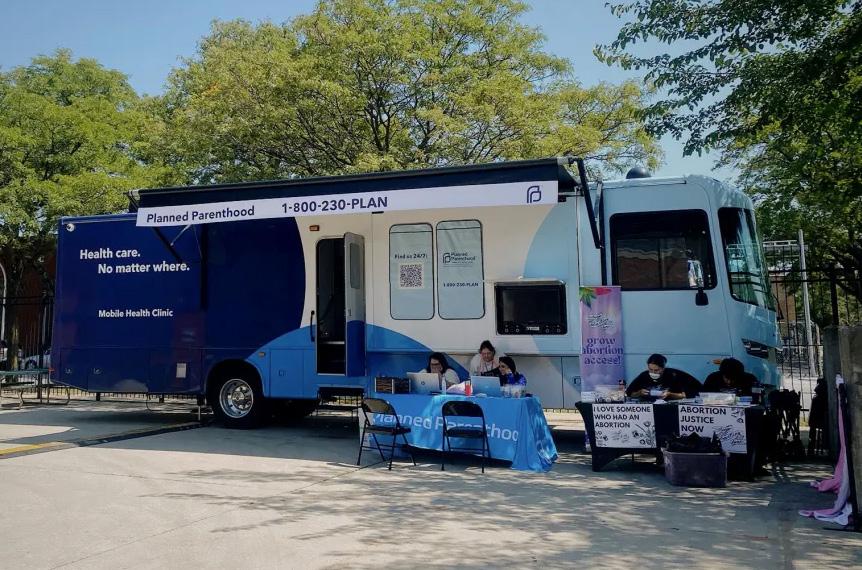
ROAD SHOW – Near the Democratic National Convention at Chicago’s United Center, the St. Louis branch of Planned Parenthood parked their mobile clinic, offering medicine-induced abortions and vasectomies. (Photo from The 19th)

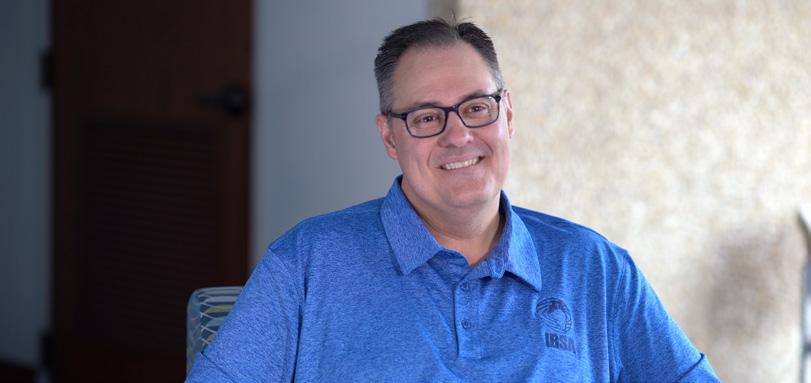




RIGHT HERE - Working together to reach our Illinois mission field

Going, going...Go! MISSION
Teams hit Chicago streets with the gospel
BY BEN JONES
e got to see God working even when there was a language barrier and we had no way of communicating except through the phone,” the young woman said to a crowd of nearly 100 students and adults gathered at Elmwood Park Community Church in the western Cook County suburbs.
Her story of using the Google Translate app to share water bottles and the Good News of Jesus with a Spanish speaking mother and child is just one example of teens experiencing how to meet needs and share the gospel in an urban environment at the Go Chicago mission week.
The long-running IBSA student missions event, held annually in late July, provides middle and high school students one week of rotating service opportunities alongside Illinois
Baptist church plants and Christ-centered non-profits in Chicago.
This summer was the first year that Go Chicago was held as a partnership between IBSA, the Chicagoland Baptist Association, and the North American Mission Board’s Send Relief Chicago Ministry Center.
IBSA Mission Director Shannon Ford said that the Send Relief partnership added new opportunities to an already great event. Months before teams arrived in Chicago, the network was at work making sure they would experience purposeful missional activities that met real needs and created opportunities for sharing Christ. “Working with Send Relief and the Chicagoland Baptist Association really displayed the strength of cooperation,” Ford said.
Chicagoland Baptist Association and P. 8
Izabela Kacaleck, an intern at Send Relief’s Chicago Ministry Center, serves alongside students at a block party during Go Chicago. The annual event brings students together with church planters in Chicagoland, introducing teens to their largest state mission field, and sharing the gospel where is it needed.
Service with a smile

Elmwood Park Community Church housed students, with the church serving as the evening and worship spot for all students. During the days the youth divided into eight teams serving at a different location each day.
The service locations saw participants doing things like neighborhood canvasing in the Lakeview neighborhood with Chicagoland Community Church, passing out water bottles and engaging people about their faith at a local “L” train stop, and painting and cleaning at By the Hand Club in the Austin neighborhood.
The missional engagement has kept students coming back year after year. Rachelle Cox, a senior in college from Joppa Missionary Baptist Church was back for her sixth year, now serving as a leader for younger girls.

“So, I really love missions, and I’ve always been drawn to hometown missions and staying near home in the United States,” she said. “I’ve been on an international mission, and I loved it. But Chicago to me, is like a hometown mission and an international mission trip because of all the nationalities and all the different communities.”
Cox’s team could be found on the Thursday morning of “Go Week” sorting donated clothing at Breakthrough, a multi-faceted Christ-centered non-profit in Garfield Park. Several of their staff are members at nearby Chicago West Bible Church, an IBSA cooperating church. The clothing was sorted by size,
season, and style, with an eye toward current fashions. She explained that the clothing distribution is “set up like a boutique. So even though they are donations, we want the clothing to be what you would wear.”
Each team also spent a day of their rotations learning at the Chicago Ministry Center. This interactive classroom time helped them better understand the different aspects of the culture and needs that they would experience among the people of Chicago.
Carrie Neely, an adult leader from First Baptist Metropolis, really appreciated learning more about the people, needs, and approaches to ministry in Chicago from locals who are serving there year-round.
“I think it’s been great this year. I like the way it’s been ordered,” she said. “We’ve had some education, more about the needs in Chicago and the people of Chicago, and then we do projects after that.”
Neely, who works with the youth in her church on a weekly basis, said that the Chicago mission experience helped the teens live out their faith in spaces outside of their comfort zone, like talking about Jesus and praying with people they have just met.
“We have done a lot of training over the last four or five years to help prepare them to be more comfortable in difficult situations like that,” Neely said. “So, they really did great.”
A city the size of Chicago, with its diversity of languages and cultures, can seem very intimidating to students and churches who come from smaller communities downstate.
But after spending a week learning and serving alongside pastors and leaders from the city, their perspective on this Illinois mission field changes. It also helps them grow in how they think about reaching their own communities.
Ford said that learning about some of the various forms of hurt experienced by Chicago residents experiencing poverty leads to students seeing people made in God’s image, not just a city with the problems all cities face.
And the lessons learned at Go Chicago extend beyond the city limits and mission trip calendar. Jason Stuckey from the Chicago Ministry Center closed the week by encouraging the students to apply this experience to their local mission field. The hope is that each student is inspired to “go home” with new skills and enthusiasm that they gained at Go Chicago.
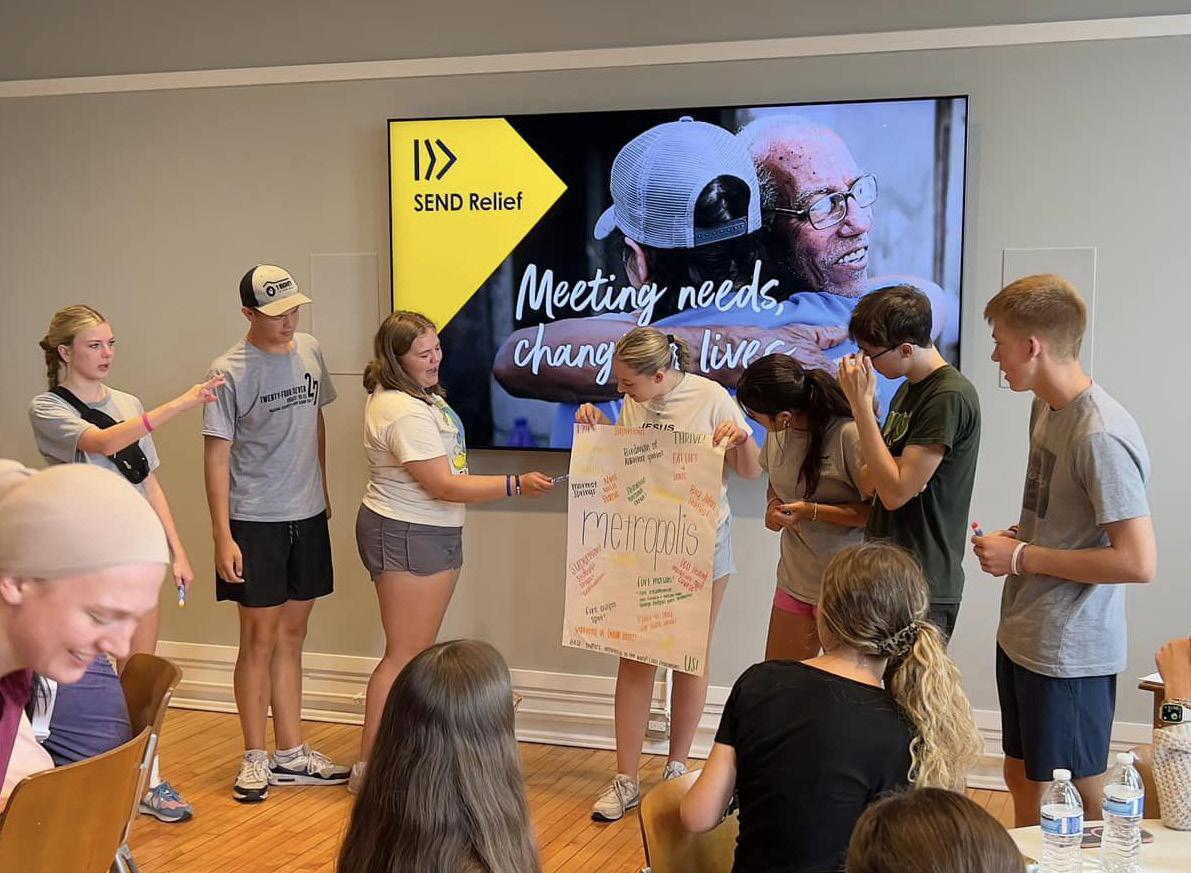
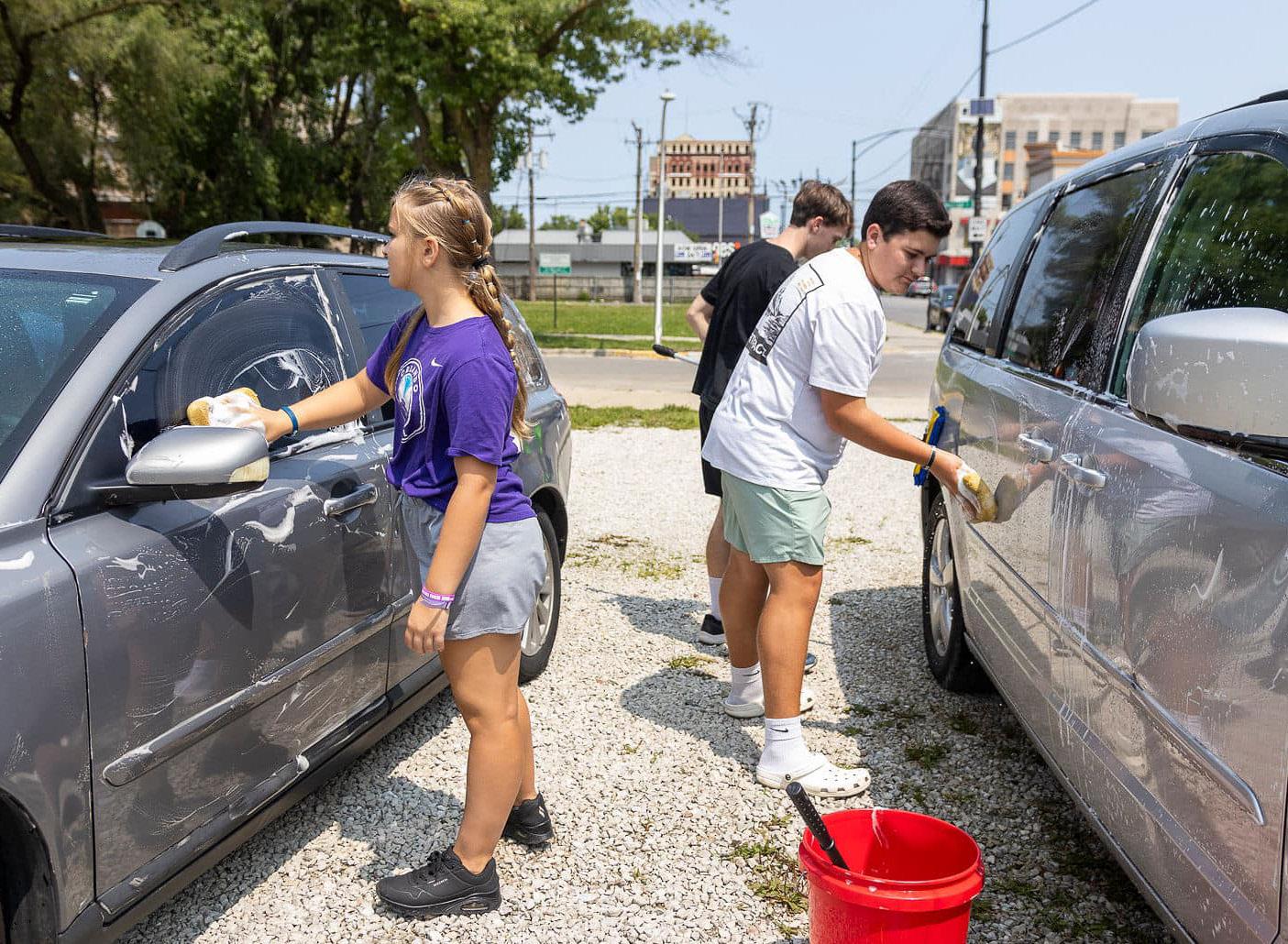
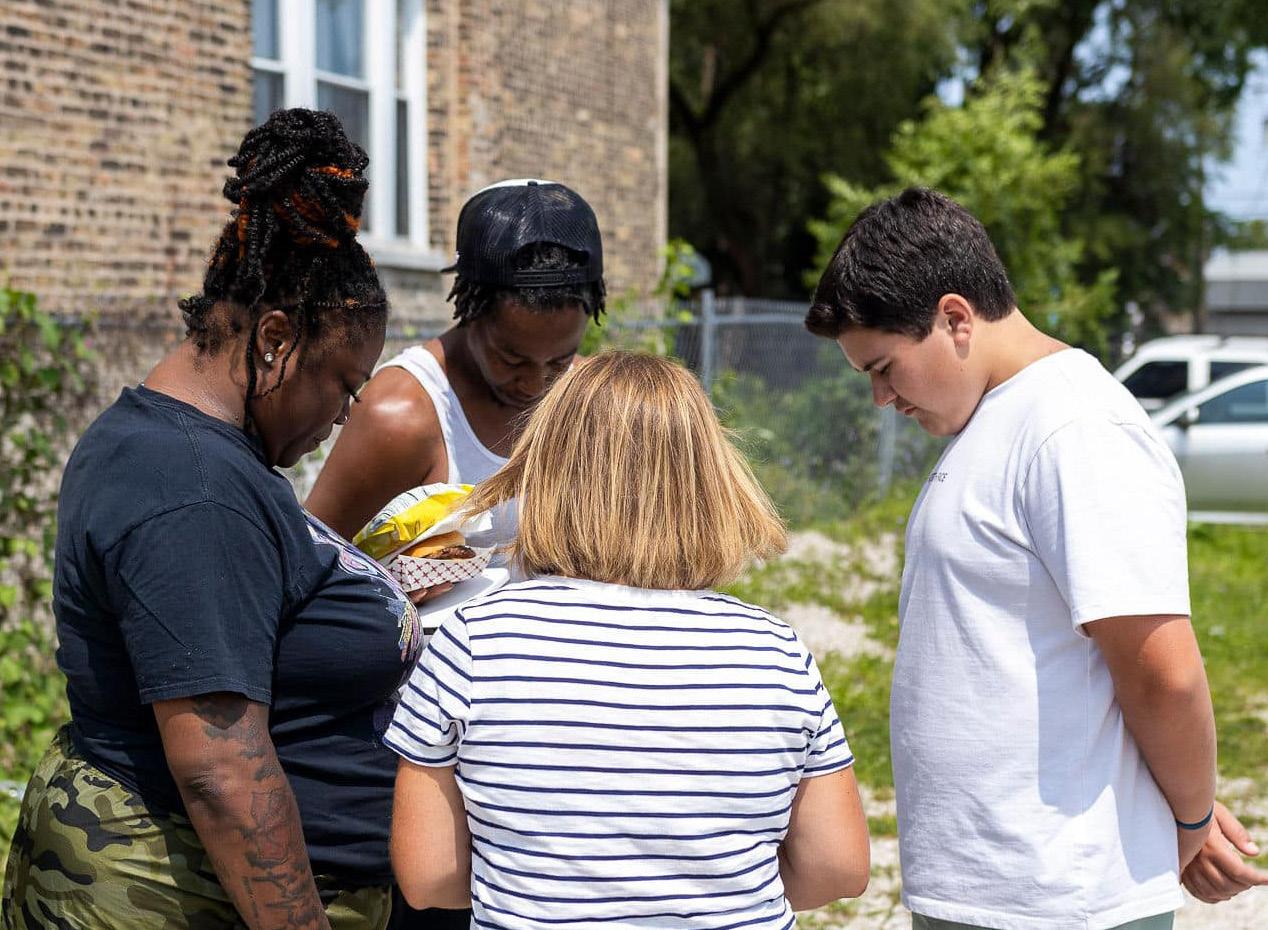
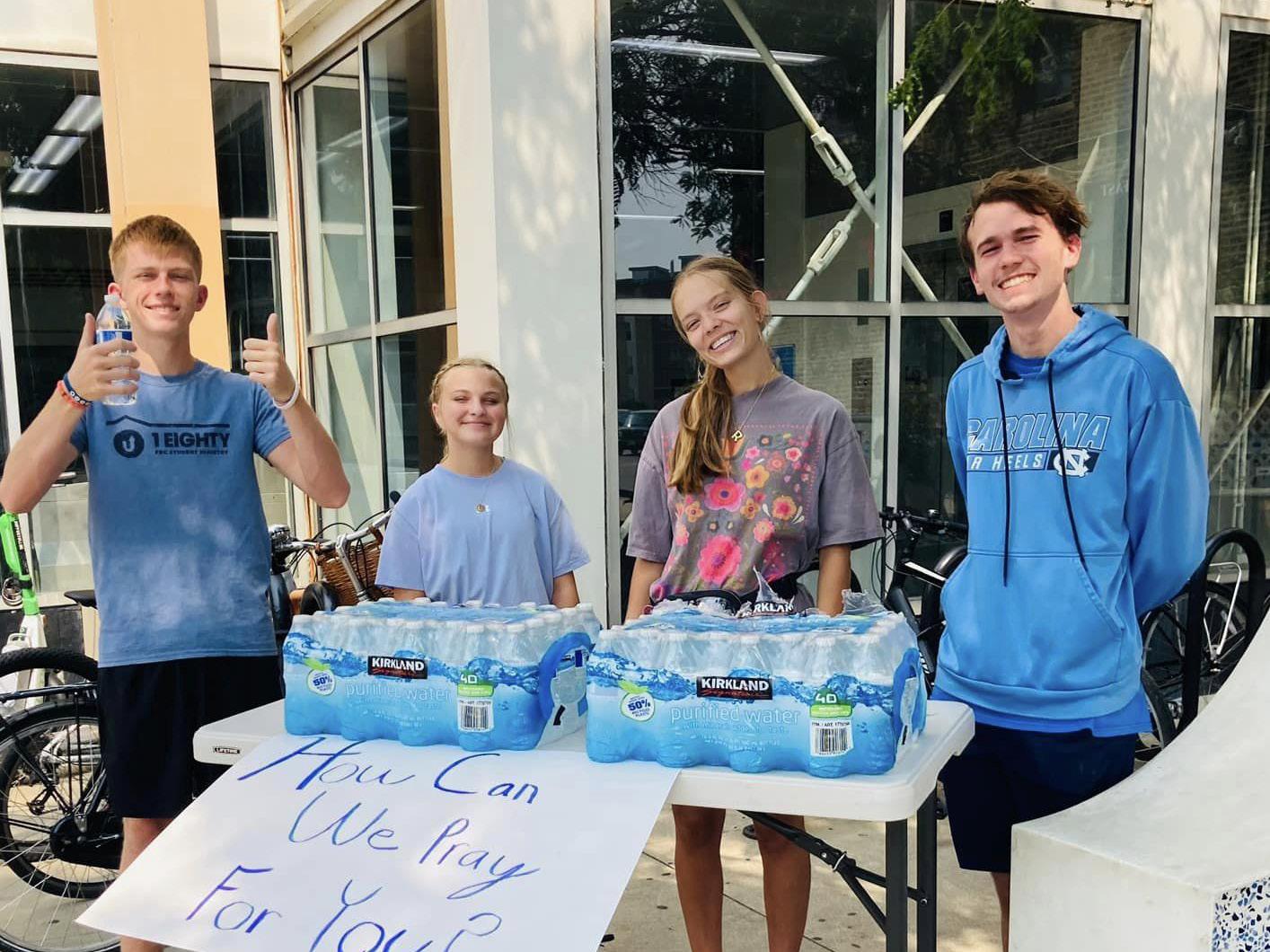
3. Church plants partnered with teams to hold car washes and block parties during the week.
4. Outreach events produced opportunities to pray with local residents.
5.
6. A trio of teens conduct community surveys near Wrigleyville.
Continued from page 7
1. The 87 student missionaries from four churches fed over 400 people and had 200 Gospel conversations.
2. First Baptist Metropolis students share about their home community during a learning session.
Rachelle Cox (2nd from right) and other Southern Illinois teens distribute water and prayer at a local “L” station.
When God has a different plan
Longtime pastor starts first SBC church in Brown County
Mt. Sterling | Don Hannel had no plans for change. He had pastored his hometown church of Pleasant Hill in west-central Illinois for nearly 19 years. The church was growing. He had a secure ministry. There was no reason to leave.
“I thought I was going to be at First Baptist Pleasant Hill my whole life,” he said. “All of a sudden, God had a different plan.”
What started as a job change for his wife led to the birth of the first Southern Baptist Church in Brown County when New Vision Community Church officially began Sunday morning services on August 18 in Mt. Sterling.
When God opened the door for Hannel’s wife, Lisa, to start a new job as principal at Brown County Elementary School, the couple quickly realized that her 50-minute one-way commute from their home was not something they wanted to do long term.
They decided to move to Mt. Sterling.
The pastor had his church’s blessing to commute back to Pleasant Hill. But it didn’t take long before Hannel sensed God was pulling his heart in a different direction.
“I had a kind of a holy discontent of beginning to feel like maybe God was doing something different in my life, as well,” he remembered. “It was a hard decision in my heart, because I know a piece of my heart is always going to be in Pleasant Hill at the church. But God began to transplant my heart for the people of Brown County. And that’s when we knew that God was calling us to start a work right there.”
The Hannels had already begun an evening Bible study in their home as an outreach to their new neighbors. That quickly became the groundwork for New Vision Community Church.
With help from IBSA Church Planting Director Kevin Jones, NAMB’s Send Network, and other IBSA cooperating churches, the new congregation began to form.
God opened doors of support in the close-knit community of 2,000 residents. The home Bible study quickly outgrew their living room and moved into an attender’s garage. But it wasn’t long before they found themselves needing more space again.
Hannel reached out to the local American Legion in the middle of the quaint downtown area. “They were very supportive of what we were doing,” he said. The Legion offered them use of the building on Wednesday nights and Sunday mornings at a


discounted cost, leading to the infant church’s next home.
Wednesday Bible studies continued, while Hannel spent Sundays worshipping and casting vision at First Southern Baptist of Beardstown, their sponsoring church, about 25 miles away.
That relationship is benefitting both churches, said Daryl Vermillion, the Beardstown pastor. He developed a relationship with Hannel in 2019 when the Pleasant Hill church brought a team to help Vermillion’s church with a large evangelistic outreach. The two stayed in touch. When Hannel announced the new work in Brown County, the Beardstown congregation immediately wanted to be involved.
“Our church has really become evangelistic since that event back in 2019, so they understood that we have to reach out to people,” Vermillion said. “They decided they wanted to support them financially and in other ways. Now they always want to know what’s going on (with New Vision), and it’s moved them to be even more evangelistic.”
After several months of Wednesday night gatherings, the pioneer group launched Sunday morning services on August 18. The American Legion was a bustle of activity with core team volunteers greeting

guests and preparing donuts and coffee, excited for the beginning of what God has in store.
Hannel was overjoyed with the response, as 63 people attended. According to Vermillion, there was cheering in Beardstown that morning when he shared the news of the launch service crowd. And the joy didn’t stop there. After the morning service, the new church met at a local lake for their first baptism, followed by a picnic.
Hannel stood waist-deep in the water at the boat ramp. He was joined by family members of his first convert, excited to be part of what they all pray is the first of many more lives changed.
The long-tenured pastor turned rural church planter is passionate and hopeful about reaching this community. “We just want to join in what God is already doing here,” he said. “We want people to know that we’re just people that love the Lord and we just want to serve the Lord right along with them.”


—Ben Jones
LAKESIDE CELEBRATION – Family joined in on the young church’s first baptism at Mt. Sterling Lake.
ON THEIR LEVEL – Don Hannel watches as his wife, Lisa, a local grade school principal, teaches a children’s lesson.
SPACE SHARING – The American Legion has ample meeting space and a great downtown location.
CAME
crowd
launch service in August.
Local Baptist Associations
Finding new ways to mobilize church networks
Illinois leaders identify
BY RICHARD NATIONS
and
plan changes for today’s ministry landscape
Springfield | Association leaders from around Illinois gathered at the IBSA building August 5-6 to talk shop and collaborate on ministry. Leo Endel, Executive Director of the Minnesota-Wisconsin Baptist Convention shared how he leads churches and associations through a fairly simple planning process to set goals and redirect future ministry activities.
Associational Mission Strategists (AMS) talked freely as the sessions unfolded with Endel as well as with IBSA Executive Director Nate Adams. Many IBSA staff members made presentations and shared in breakout groups to encourage networking with associations for ministry advance.
“We were able to rub shoulders with other association leaders,” said Brent Cloyd of the Greater Wabash Baptist Association. “I found a lot of help from Leo Endel’s sessions. It was simple planning strategies that most small churches can buy into.”
Endel called his planning process “Where Do We Go From Here.” He has published a book with the same title.
As a pastor in Missouri and Iowa, Endel said he was leading smaller congregations that did not have the time, patience, or affinity to do much in the way of strategic planning. Endel had an academic background in financial and business management but

was called to ministry soon after completing his MBA. So, he led his churches to plan and set goals. But he found most Christian books on strategy planning were too difficult to use in small church settings.
“What I discovered frustrated me,” Endel said. “There were very few processes available. The ones I found were so detailed and tedious that they would have baffled a Fortune 500 company. Fifty pages into one book, I wrote in the margin, ‘I don’t know a single pastor who would do this.’”
After moving to lead the MinnesotaWisconsin convention, he put together a simple process to help churches take stock of their ministry situation, gather input from leadership, and write two or maybe three goals.”
This gets them started in planning in one three-hour session. They can revisit the process in succeeding years and continue the planning. This gets them out of the seven-day cycle of planning from Sundayto-Sunday.
Associational leaders seemed to resonate with the presentation. There were sessions led by IBSA’s Scott Foshie to tweak the process for both churches and associations.

Tom Rains said, “In Bay Creek, we don’t do a lot of things but we do ‘some’ things. Our churches for the most part are about 95% active in doing things together. We see spiritual fruit in that. An example is our camp. We have six churches, most are very rural. But we had 80 kids at camp, and 15 campers made professions of faith.”
Rains said the churches are united and the pastors and wives are like family.
Cloyd said he believes the future of the local Baptist association is still bright, despite what some reports seem to indicate. He said it appears the trend is for associations to mostly employ parttime or bivocational association strategists. Illinois Baptist leaders were pointing out that there are only six full time associational strat-
Observations from the Roundtable
Question:
“What is your biggest takeaway from the Associational Roundtable?”
Answers:
“I definitely came away with strategies that I will be able to implement. One was more of a detailed, shorted version of ReFocus. We can still do the longer process, but it’s good to have a shorter process out there available to us.”
—Terry
Mathis, Associational Mission Strategist, Union Baptist Association
A picture of Cooperation
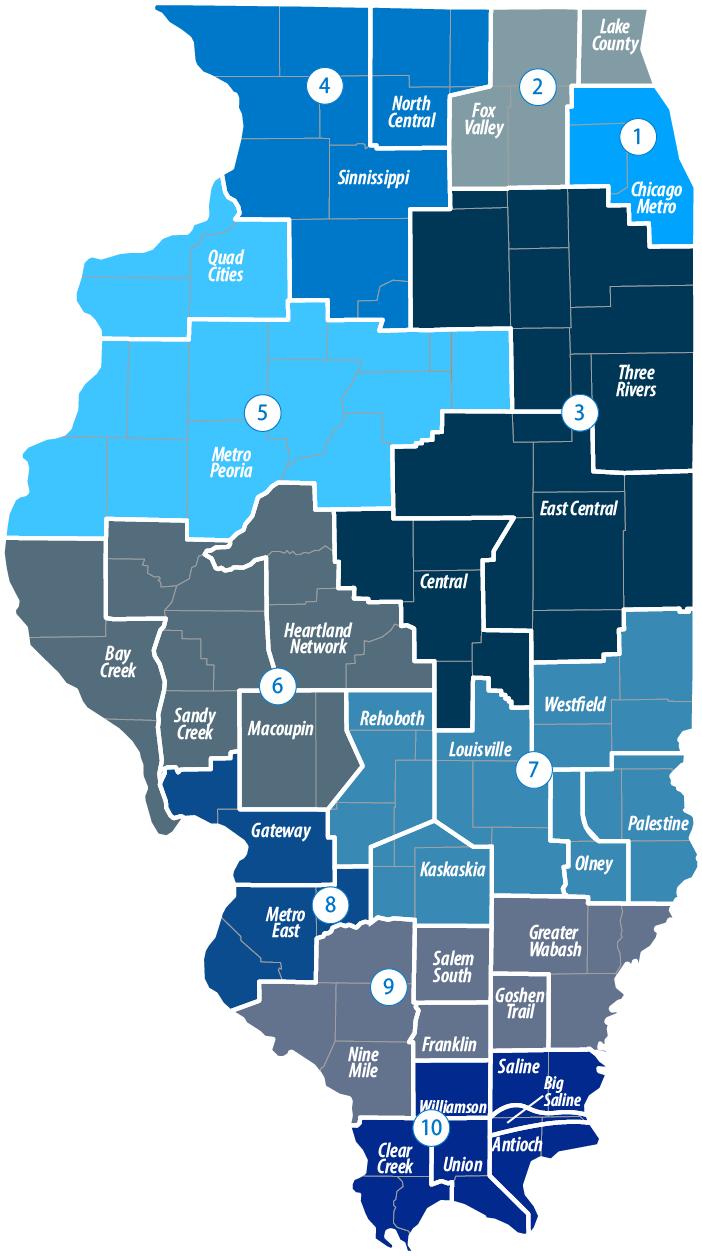
UNITE AND CONQUER — Illinois has 33 associations of local Southern Baptist Churches. While most had full-time staff leaders as recently as 15 years ago, today the majority are led by volunteer moderators and Associational Mission Strategists. IBSA Zone Consultants also serve 10 regions across the state.
“We’ve got to get going with our leadership. We’ve got to think younger. What do we need to do to involve young leaders? We only had four under 50 [here], and they were all sitting together in one row.”
—Joe Lawson, Associational Mission Strategist, Rehoboth and Louisville Associations
“All of us need to think differently than how we’ve thought before. We need to simplify and shorten processes. People aren’t going to give you the time, because they don’t have the time.”
—Dan Eddington, Associational Mission Strategist, Three Rivers Association
“The scorecards for associations setup to see what you’re doing, not doing, and what you want to do. I see it as a good way to review our progress.”
—Will Ferguson, Mission Mobilization Director, Metro Peoria Association
“Developing a scorecard to see how we’re doing in finding the right metrics. I want to use it at our [association’s] annual meeting so it’s just not anecdotes.”
—Nathan Carter, Associational Mission Strategist, Chicagoland Baptists
BEST PRACTICES — Mark Emerson, IBSA Associate Executive Director, welcomed associational missions strategists to the IBSA building for a recent AMS Roundtable event.
ENDEL
Continued from page 10
egists currently employed in Illinois. Most associations now have combination positions with pastors who also serve as associational leaders.
Cloyd believes associations that employ part time AMS leaders are forced to do so because of financial constraints. He said the AMS has to develop strong relationships with pastors and have connections with church leaders.
“I sense that any revival or renewal in the life of the association has to start from the ground up as a grass roots movement,” Cloyd said. “I do not think there is much you can do to shape that from above. There is a real danger that efforts from above to shape the movement would kill it because the people and structures on the top are so accustomed to the way things are that they try to fit the new movement into the old paradigm.”
Endel told the group that an AMS or a state convention leader in a small state has to be a “generalist.” He
called himself a “jack of all trades” in his ministry setting. In their convention, they only have a few state staff members and all their associations employ part time associational staff. He has to be able to consult and train in many arenas of ministry. He doesn’t see that changing in the SBC setting.
“The key thing is close connectivity. As an AMS you are in a position that no state or national level leader can get as close to the local church,” Endel said. “You know the names of the pastors and the church leaders.”
As the association leaders left Springfield, they took back a renewed sense of cooperation and a tool or two to help them plan, do evangelism, care for pastors and lead their associations and churches into the future.
Richard Nations is associational mission strategist for the Sandy Creek Baptist Association.
Rise of the ‘generalist’
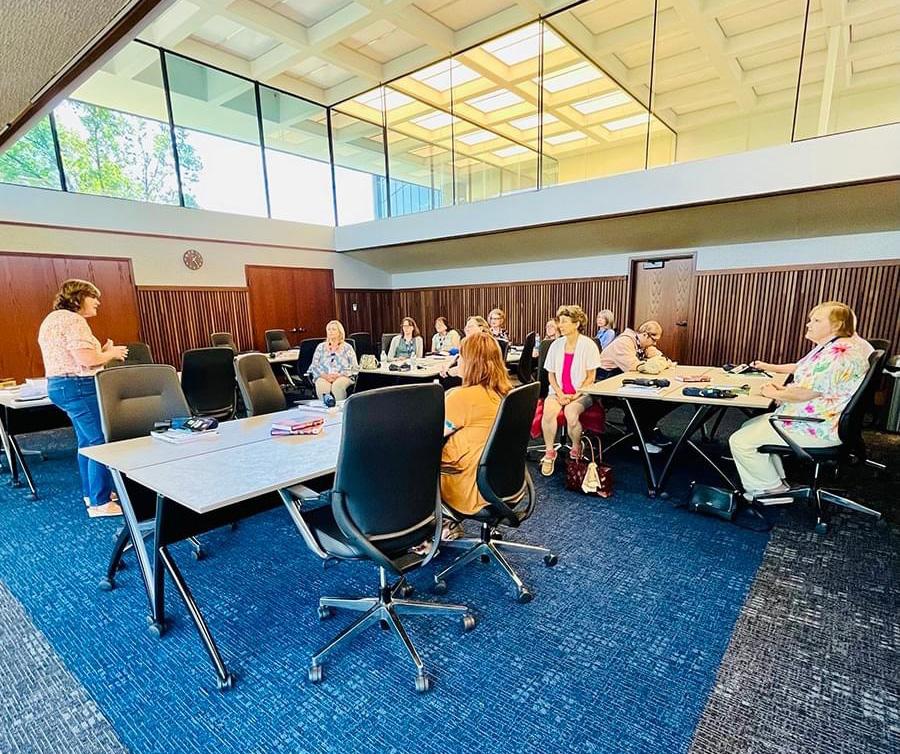
State conventions reinvent staff roles to do more work with fewer people
Nashville, Tenn. | Plato is credited with the origins of the phrase “necessity is the mother of invention.” As churches and denominational leaders have also realized, this reality led to the need for a different kind of staff member.
It’s even more the case at the state convention level. To adequately resource churches across a broad area with minimal staff, it has become more necessary to look for those with a sizeable toolbelt.
“It is not financially practical or fiscally responsible to add staff to smaller state conventions that can only do one thing,” said David Manner, executive director for the KansasNebraska Convention of Southern Baptists. “There are too many jobs and too much territory to only do ministry from a single ministry sweetspot as specialists.
“So, our convention staff are generalists who have intentionally developed a broad scope of knowledge across various ministry disciplines so they can respond immediately to the
needs of our churches and leaders instead of making them wait until a specialist is available.”
Manner isn’t the only state leader to use the term “generalist.” It is a necessity driven by the realities of a changing landscape and a desire on the part of leaders to be good stewards of the gifts and resources given them.
The need for generalists became more apparent for IBSA Executive Director Nate Adams. When he returned to Illinois in 2010, almost all of the state’s 33 Baptist associations were led by full-time associational staff, with more than a third of them funded by the North American Mission Board and the state convention. As NAMB moved its focus, and funding, toward church planting, it affected associational missions to the point that only six of those roles are full-time today.
Most of those associational directors fit the “generalist” role, Adams said. Although they could look to state and national entities for specialized training or resources, they also possess the know-how to assist churches in areas such as Sunday School, worship, missions and evangelism.
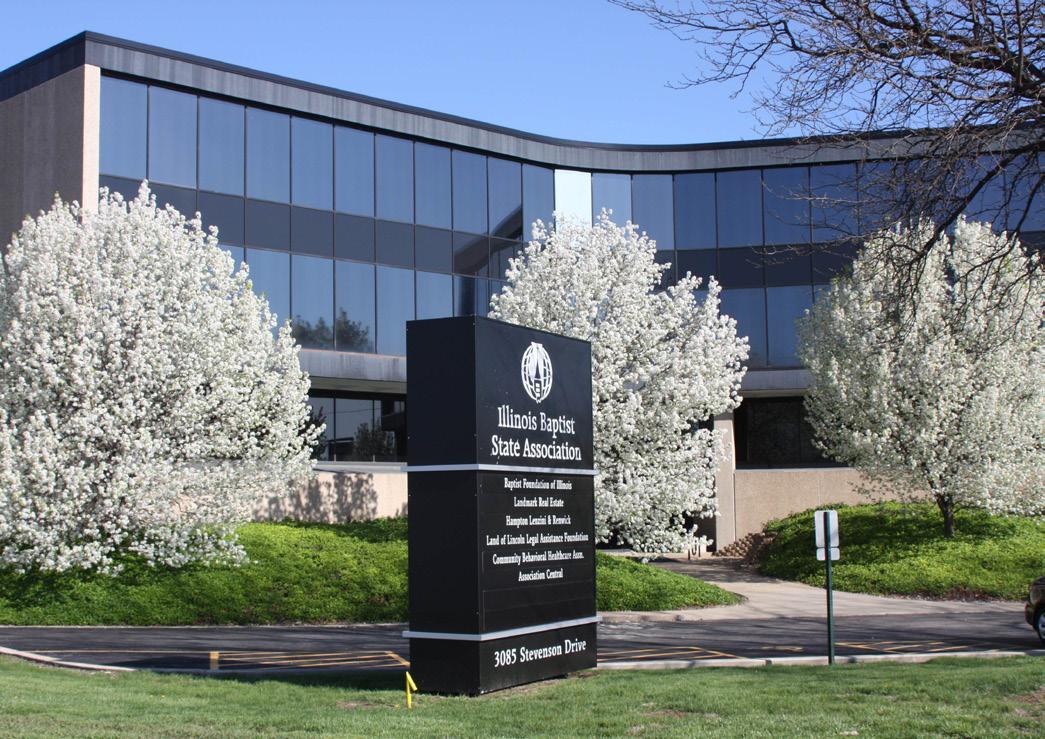
The state is doing what it can to fill those needs
once covered by full-time associational leaders. “For many pastors and churches, there is now a noticeable absence of the trusted local generalist who can help them or at least get

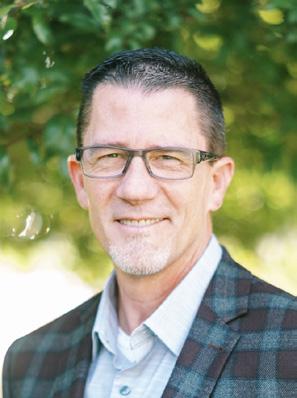
them started in multiple ministry areas,”
Adams said. “And we as a state network are seeking to more proactively partner with local associations to provide people who can help churches in a variety of ministry areas.”
It’s important to hire state staff who possess a wide set of ministry skills and background. It is just as important that they fit that state convention’s model for resourcing affiliated churches.
“The foundation of hiring our convention staff is not necessarily their expertise in one specific discipline,” said Manner. “It is instead how they are able to use their various gifts to serve churches, maximize partnerships and propel leaders through a disciple-multiplying culture. Those foundational principles are where we begin, not with their specialized ministry discipline.”
Just as the ministry landscape for churches remains in flux, so it does
for state conventions.
“Each year our state network leaders are needing to learn new ways to assist churches with new needs such as church revitalization and restarting, sex abuse prevention and ministry to survivors, online and virtual ministry strategies during a pandemic, pastor and staff search processes in a day of significantly fewer candidates, legal issues threatening their religious freedoms, and more,” said Adams.
This is happening at a time, he added, when giving through the Cooperative Program has not kept pace with inflation and other costs.
“Our state staff has fewer specialists in multiple church ministries, and those staff must absorb these new challenges as well,” Adams said. “So, we are increasingly looking for network staff who don’t just have experience or skill in a certain ministry or even multiple ministries, but who can learn and adapt quickly to the many new challenges churches face.”
Looking for generalists isn’t just for smaller state conventions, said Manner. Nor is it a passing fad.
“There are always more ministry jobs to fill than budget money to fill them. So, hiring ministry staff that can only do one thing well is poor stewardship,” he said. “Those preparing for ministry who are generalists, or able to wear various ministry hats, are going to be more appealing to churches who have multiple ministry holes to fill.”
—Scott Barkley for Baptist Press
BETTER HALVES — IBSA’s Carmen Halsey-Menghini (left) speaks with wives of Illinois associational missions leaders at a recent AMS Roundtable event at IBSA offices. The ladies had time for conferencing, fellowship, and trip out to a new Springfield ice cream stop. IBSA photo.
MANNER
ADAMS

A Call to Humility and Prayer
Our request today is simple in concept but beyond our comprehension in power. We are calling our brothers and sisters to a penitential period of prayer this fall. Could the times be any riper?
– 65 million children sacrificed in “legal” abortion since 1973
– Assisted suicide on the horizon
– Children exposed to graphic, immoral, “comprehensive” sex ed/racism
– Soaring rates of STDs, addictions, and suicide
– Prideful celebrations of LGBTQ+ deviancy
– Human/sex/drug trafficking
– Marriage and gender redefined
Gender confusion taught in schools
– Fatherlessness at all-time highs
Church attendance at all-time lows
– Legal prostitution under consideration
Corrupt politicians and media
– Deliberate destruction of the family unit through social welfare programs
– Pornography/adultery
– Growing gang violence, murders and crime
This is only a sampling of what’s happening in the nation, unabated. We can honestly say that the foundations are crumbling (Psalm 11:3). Our state and our nation need Christians to intercede in prayer to ask Almighty God for His mercy as the November election approaches.
We know that our hope does not lie in our elected officials, but even so, we believe God is moved by the prayers of His people. This is not a call to pray for a political victory. Even so, we want to see a wave of pro-life/pro-family candidates win their races for state and federal office. That will not happen if we do not humble ourselves and seek God in prayer.
Our prayers must be focused on personal repentance. We must acknowledge our culture’s rebellion against God. We must pray that “we the people” of the United States would honor Almighty God.
We must pray for national repentance.
So, we urge you and your church to join others in seeking the Lord in corporate prayer for the future of the United States.
Our nation is in desperate need of repentance and God’s healing. While we recognize the judgment we deserve as a nation, we must continue to look to God who hasn’t changed. He is the same yesterday, today, and tomorrow.
In 2 Chronicles 7:14, God has given us a template for the repentance and restoration we so desperately need:
…if My people who are called by My name will humble themselves, and pray and seek My face, and turn from their wicked ways, then I will hear from heaven, and will forgive their sin and heal their land.
While this conditional promise was given to Israel, we believe that even today, God is pleased by those who would follow –in spirit and in truth – this biblical prescription. And while God owes us nothing, in His mercy and compassion that are new every day, He invites us to bring Him our prayers, petitions, and requests.
In this verse, we are called to humble ourselves, pray, seek God, and repent.
If we come to Him with a truly contrite heart and repentant demeanor, we have no reason to believe He will not hear, forgive, and heal our land
Scan the code to learn more

GROWING
MEET THE TEAM
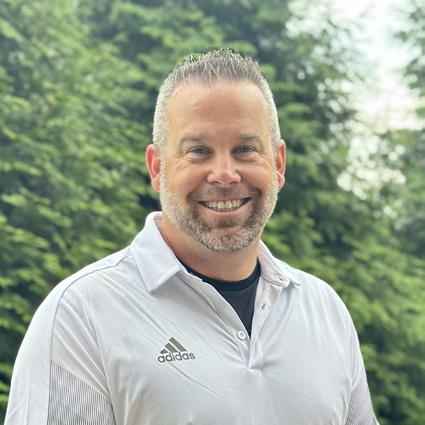
Drew Heironimus
IBSA Information and Technology Services Director
Hometown: Born in Tupelo, Mississippi, but raised in Springfield
Family info: Married to Rachael almost 22 years, with three kids: Jacob (20), Marissa (18), and Mason (14)
Higher ed: Bachelor’s in Business Administration with a minor in Computerized Business Systems
Before IBSA: Melissa Phillips and I went to church together at Springfield Southern and she started a conversation about a job opening at IBSA. I did not have a lot of experience with IT, but Melissa and Janet Crayon wanted someone they could train, teach, and mold into an ideal employee. Due to their help and patience, I have completed over 27 years with IBSA.
Life verse: “Love the Lord your God with all your heart, with all your soul, and with all your mind” (Matthew 22:37).
Favorite Bible person: I tend to look at those that played a behind the scenes role, just like my job at IBSA. I am not front and center at events, trainings, or publications, but my work behind the scenes helps our leaders do their job and help spread the gospel.
Hobby: I like to wash cars. I have created my own car wash in my garage.
Favorite snacks: Baskin Robbins’ Peanut Butter Chocolate Ice Cream and Peanut M&Ms
Favorite Fair Food: Elephant Ears or Cheese Curds
Favorite movie: “Rat Race”
Mac or Windows: Both
Ttable talk
Smaller churches should stay focused
Our big mission requires bigger visions
he average church size is shrinking. Lifeway Research reported that in 2000, 45% of churches had fewer than 100 in weekly attendance but by 2021, that number had climbed to 65%. Should a shrinking church sound the alarm? Absolutely not!
Jesus masterfully proclaimed the church’s global mission to 11 disciples. He didn’t wait to relay the mission until 3,000 people were added to the church in Acts 2, because it’s not the size of the congregation that legitimizes the mission. All Christ-followers are entrusted with the mission.
In Matthew 28, we discover three practices that all churches— regardless of their numerical size—can execute to refocus their commitment to the great mission.
1. Revisit the mission
I enjoy routines. But often, I become so absorbed in my daily routine that I can mindlessly move from task to task without thought or purpose. When I do this, anything outside of routine becomes an interruption or an inconvenience to my agenda. In the same way, churches are often tempted to allow routine to replace the mission. But a church without a mission has an unclear purpose. So, it’s helpful for churches of all sizes to pause from time to time to revisit the mission Christ gave.
As the 11 gathered around Jesus, he said to them, “All authority has been given to me in heaven and on earth. Go,
therefore, and make disciples…” (Matthew 28:18b-19a, CSB).
A church focused on Christ’s mission has a clear purpose. It knows why it exists, the reason for its location, the direction of its financial statements, the purpose of its Sunday School, the goal of its age-graded ministries, and the motivation for its witness in the community. The great mission of the church is to make disciples. Revisit Christ’s great mission for your church. Examine your programs, outreach, budget, classes, and meetings with His mission in mind. However, don’t stop with the great mission. Recast the grand vision.
2. Recast the vision
A shrinking group embracing a small mission has limited vision. However, a big mission, no matter the size of the group, leads to a grand vision.
Jesus continued with his 11 disciples, telling them “to make disciples of all nations” (Matthew 28:19, CSB).
Imagine how overwhelmed they would’ve felt hearing “all nations.” Making disciples in Jerusalem was certainly possible with 11. Expanding outward into Judea was perhaps difficult but achievable. Samaria? Attainable. However, Jesus said, “But you will receive power when the Holy Spirit has come upon you, and you will be My witnesses in Jerusalem, in all Judea and Samaria, and to the ends of the earth” (Acts 1:8, CSB). Jesus had a great mis

“And you’re absolutely sure there’s no senior discount?”
sion and cast a grand vision for the 11.
So how can your church recast Christ’s vision for your church? Begin at home, but don’t take your eyes off the world. Lead your church to sacrificially give financial support to missionaries across the nation and around the world, and be encouraged that you’ve participated in making disciples of all nations.
One day, by God’s grace, all your efforts in disciple making—great or small—will come to an end. You will stand before the throne of God, but not alone. Disciples from every tribe, nation, and language will join together to praise the One who sits on the throne. So, recast the vision with the end in mind. But recognize the source of your efforts is not your might or strength but your source comes from Christ alone.
3. Recognize the source Disciple making in the ancient world wasn’t limited to Christianity. Secular philosophers had disciples who followed them and imitated their studying, eating, and sleeping habits. Olympians had followers who imitated and followed their every move and routine. Disciples imitate the master. The church’s mission is to make disciples who imitate and follow the Master.
Jesus finished speaking to the 11 disciples, saying, “Go, therefore, and make disciples of all nations,... And remember, I am with you always, to the end of the age” (Matthew 28:18-19, CSB). What comforting words for the disciples. With the nations around them and the great mission before them, the 11 weren’t alone in their mission. Jesus is the source of the mission. Churches, whether large or small, make a difference because Jesus makes a difference.

Drake Caudill is pastor of First Baptist Church of Carmi. This column is excerpted from Lifeway Research.




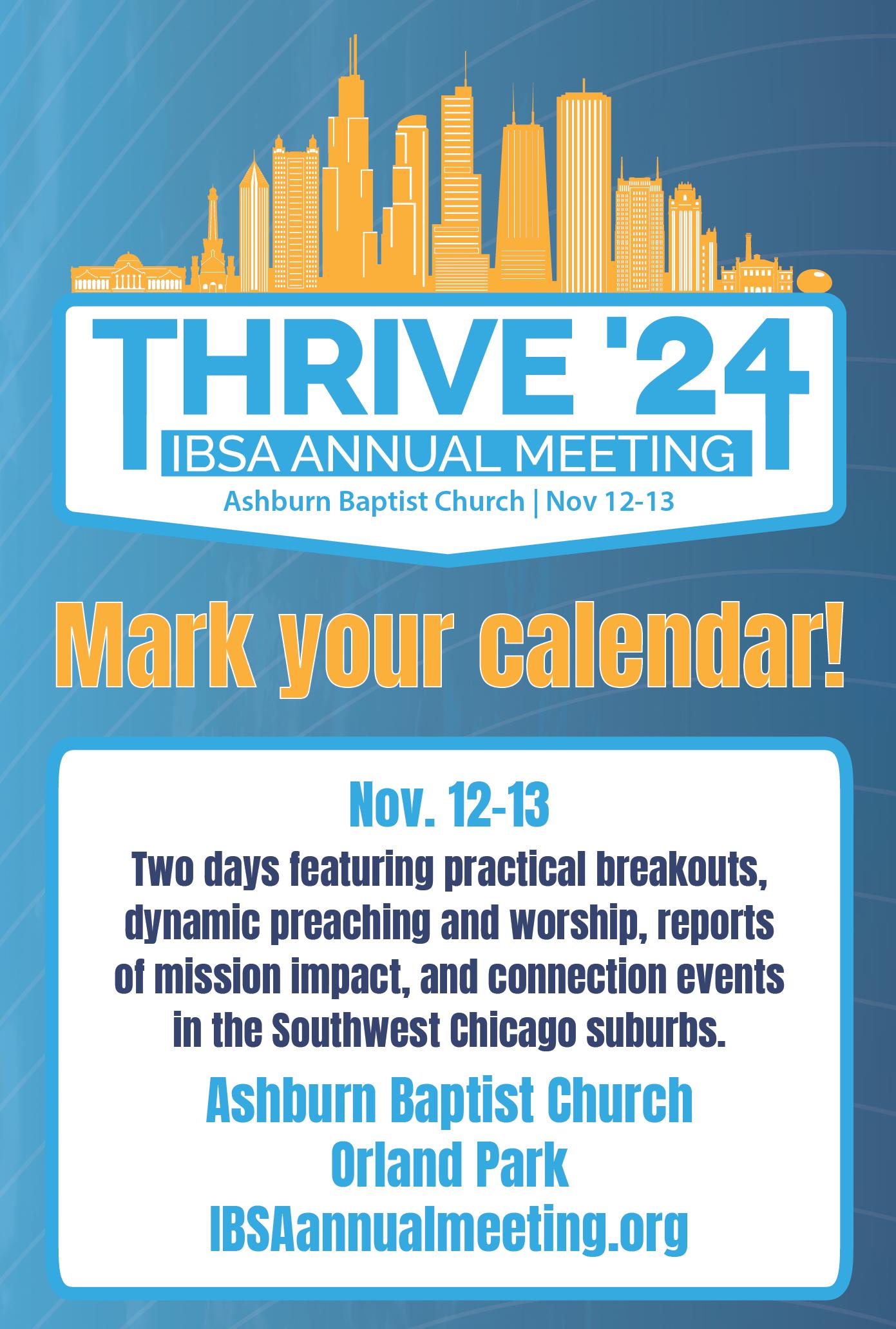
Hispanic plant baptizes 11
Decatur | “We knew that the Lord was calling us to open a church here in Decatur, Illinois, where we see there’s a lot of need in the Hispanic community,” said Aldo Galicia. “We know for a fact there’s over 2,000 Hispanics here in Macon County, and we know that the Lord is providing and he’s opening all the doors for us to reach out to (this) Hispanic community.”
Galicia pastors Ministerios Yahweh, a church plant he started this year in partnership with Logos Church, a 2022 church plant in Decatur pastored by Tom Gensler. The Hispanic congregation meets in the Logos building and on Father’s Day had over 60 people in attendance.
Gensler introduced Galicia to IBSA Church Planting Director Kevin Jones who has assisted in the church planting process. “You know,
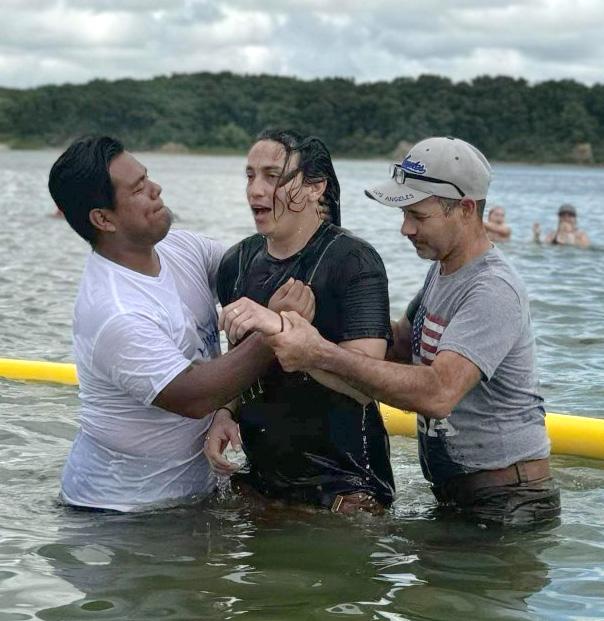
Kevin has definitely helped us with resources, and he has encouraged us to just stay the course,” said Galicia. “One of the parts of the IBSA is that they truly, truly care about the new folks starting new churches.”
On July Fourth, church members met at nearby Lake Shelbyville where Galicia baptized 11 new believers. He called the baptisms “a good sign that the Lord is definitely, and we are definitely making a difference here in Macon County.”
Galicia said he can already see “lives changing” and “families changing.” He said people are seeing “God is real, and he came here for us. We have a second chance for them to come closer to Jesus and come and meet him.”
The church plant had its official launch in August.

Pastor proven good sport
Mt. Vernon | The boys and girls at one Illinois Baptist church’s Vacation Bible School (VBS) enjoyed a little friendly competition raising offering funds through the sweetness of lemonade and cookies before bringing on the goo. The gooey, sticky, greenness of slime. Whoever raised the most funds would win the privilege of “sliming” their pastor.
Logan Street Baptist Church in Mt. Vernon held its VBS from July 19-25 with more than 150 kids in attendance each night. Kathy Atchison, a church member, said it was “a week full of fun, learning, and lots of laughter.”
It’s not surprising that the church enjoyed the week so much. VBS has been playing a vital role in Southern Baptist life since the 1920s. Lifeway reports it accounts for roughly 25% of baptisms in Southern Baptist churches. It also has eternal consequences. Nationally, every one person trained in VBS results in 1.1 salvation decisions.
One of the highlights of Logan Street’s VBS was “a super-determined group of young ladies [who] took it to the next level by setting up a lemonade stand in their neighborhood,” Atchison said. “They sold homemade cookies and lemonade, and guess what? They raised over $550!”
The friendship challenge
What my ‘you too’ moments have convinced me about loneliness for the pastor
“I
t’s dangerous to go alone!” So says the classic line from the video game, “The Legend of Zelda.”
The person who says this line gives hero and main character Link a sword with which to continue his quest, as though the sword will be his companion along the way.
I wonder if sometimes we as pastors role play as Link. We charge out, sword in hand (the Bible, of course) ready to slay the dragon and build His church. We work hard and preach harder. We counsel and meet and console and pray—and we do it alone. Or at least we feel alone.
I once left a bivocational youth ministry in part because of how alone I and my family felt. Ministry can be the epitome of “being lonely in a crowd.” And we all know God said, “It is not good for man to be alone.”
It’s worth noting that when God uttered those words, Adam enjoyed God’s presence and relationship. Justin Earley in Made for People makes the case that “you can be lonely with God.” In other words, God made you to need other people.
The enemy loves to make us feel alone. Fear, pride, bitterness, jealousy, anger,
and lust are all sins that thrive when we are isolated. If you need proof, just read what a lot of lonely people (and some lonely pastors) are posting on social media these days.
Ministry can be an especially difficult place to form friendships. I think that is why it is important for us to put ourselves into places where we can meet and befriend other pastors.
I love how C.S. Lewis talks about the way a friendship begins in The Four Loves. He says friendship begins when someone says or feels something like, “What? You too? I thought I was the only one.” Friendship is born when we discover something in common with someone else that we believed to be our own unique treasure or burden.
In ministry, hearing that we are not the only ones who might be struggling or can’t figure out how to lead the church forward in its next step or simply celebrating with someone over a victory in the church is a healing balm and uniting force that can give us enduring power.
One thing I’m glad I did when I was Associate Pastor at Tremont Baptist was coldcalling other pastors (including second chair
At the end of the week the girls’ team won the opportunity to slime Pastor Steve Lyles, who appeared to be a good sport about the whole thing. The money will go towards Samaritan’s Purse Operation Christmas Child and community programs.
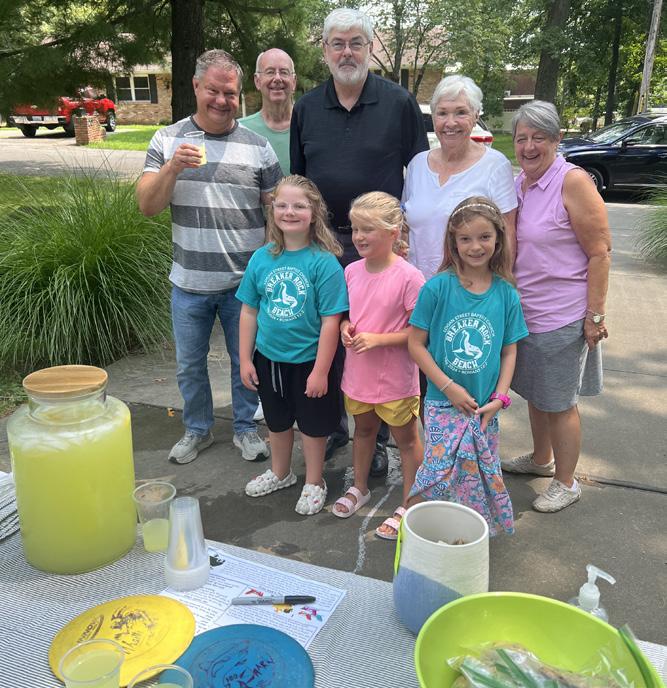

pastors) in the area and taking them to lunch or coffee. I had a lot of “you too!” moments that way.
Events like the Multiply IL Hubs this month and the Annual Meeting in November are great avenues to connect. It may be that the person you meet in the hallway or the conversation you have over dinner could be as beneficial to you as the scheduled programming.
As my pastor likes to point out, when we skip church services, we miss the benefit for ourselves and rob others of the blessing of our presence. When we check out of (or never get involved in) associational and network life, we are missing what God wants to do with us through the relationships we would have formed and taking from others the blessing our presence would bring to them. This fall let’s waste some time on friendships. Remember, it’s dangerous to go alone. Take a friend with you.

Michael Awbrey is a Leadership Director on the IBSA Growth Team.
School prayer BRIGHTER DAY
It has been one year since I started a new job at our daughters’ school. One year of working alongside teachers and administrators who I now know are choosing to do an exceedingly difficult job. One year of learning alongside students who have good days and bad days, sometimes within the same seven hours. School is a challenge, for teachers and students. In my role in our school office, I’ve felt driven to pray more than in any job I’ve ever had. These are some of the specific ways I’m praying as we start a new school year:
For parents, from those sending a new kindergartner to school for the first time, to the ones facing a graduation in nine months. Transitions are hard, especially when the children we send off still seem so vulnerable. Help us, Lord, to change well. Compel us to trust you with our children. Help us loosen our grip when it should be loosened, but keep us sharp and wise to the messages they’re hearing away from home. Infuse our homes with the hope of the gospel.

For administrators, many who didn’t have much time to shake off the last school year before entering for the one ahead. In the face of all their plans, remind them the outcomes are ultimately in your hands. Help them lean on you. Give them words of peace to speak when tensions arise. Renew their joy when challenging situations threaten to steal it.
For teachers, who have spent their summers stenciling and cutting and moving and shuffling. Bend their hearts to your will for the school year ahead. Give them new measures of faith and grace. Renew their strength regularly. For those that already know you, strengthen their resolve to love their students well and faithfully serve families in their care this year. For those that don’t, put parents and others in their paths who will point them to Jesus.
For students, Lord, soften their hearts. Help them brush off any remaining dust and rust from summer and focus their minds on the year ahead. Put them in the paths of people who will protect and love and nurture them. Guide their friendships and give them kind words to say to one another.
Compel us to pray continually for the teachers and students we know, Lord, and remind us that this school year, like every year, is in your hands. Amen.
Meredith Day Flynn is a wife and mother of two living in Springfield. She writes on the intersection of faith, family, and current culture.
EVENTS
Ignite Evangelism Conference
What: A two-day evangelism event to encourage, inspire, and instruct you to effectively share your faith.
September 15-16 – Chatham Baptist Church
September 29-30 – Second Baptist Church, Marion
Cost: Free
Info: IBSA.org/events/ignite-evangelism-conference/ Contact: ScottHarris@IBSA.org
Multiply Hubs
What: Multiply IL is a collaborative space for growth and learning. This gathering will help pastors and leaders take their churches to the next level with best practices for growing, healthy, thriving churches. Explore proven strategies. Connect with passionate peers. Deepen your knowledge.
September 17 – South, FBC Metropolis 5:30-8:30 p.m.
September 19 – Metro East, FBC Fairview Heights 9 a.m.noon and 5:30-8 p.m.
September 25 – Central East, FBC Rochester 9 a.m.-noon
September 26 – Chicago, Urban Voice Church, Chicago
9 a.m.-noon
October 3 – Central West, The Journey Church, East Peoria
9 a.m.-noon
October 5 – Hispanic Chicago, Iglesia Emanuel, Aurora
9 a.m.-noon
Contact: MissionIllinois@IBSA.org
September 20-21
Priority Retreat: Pastors’ Wives
Where: IBSA Building, Springfield
What: A weekend for rest, fellowship, renewal, worship, and encouragement.
Cost: Free for those who opt for a hotel room w/ double occupancy; $58 for a private room.
Info: IBSA.org/events/priority-retreat-a-gatheringfor-pastors-wives/ Contact: TammyButler@IBSA.org
September 24
Ignite Night
Where: Clear Creek Association Building, Anna
When: 6:30-8:30 p.m.
What: A one-night training event to help encourage, inspire, and instruct you to effectively share your faith.
Cost: A free evening meal will be provided at 6:30 p.m. Info: IBSA.org/Evangelism
Contact: EmilyJones@IBSA.org
NeTworkiNg
Send NetworkiNg items to IllinoisBaptist@IBSA.org
Reno Southern Baptist Church is a small congregation in rural Illinois with an average attendance of 20 and hopes for growth. Minimum of two years of experience and education desired, but not required. Salary will be discussed upon call. Contact Richard Fones, 661 16th Avenue, Greenville IL, 62246. chaplainrick@hotmail.com
Old Du Quoin Baptist Church seeks a bivocational Pastor. Please send resume to Pastor Search Committee, 8831 Old State Route 14, Du Quoin, IL 62832, Attn: Dale Akers

October 4-5 DART Training
Where: IBSA Building, Springfield
When: 1-5 p.m. Friday, 8 a.m.–4 p.m. Saturday
What: DART (Disaster Assistance Response Training) is a cooperative effort between SEND Relief and IBDR to equip responders in providing compassionate ministry during crisis events overseas. The class covers international disaster response, assess and report needs, coordinate with disaster relief partners, and providing technical assistance and relief supplies to communities in need.
Cost: Free
Info: IBSA.org/dr Contact: smithjen552000@yahoo.com
October 11-12
Northern Ladies Retreat
Where: Streator Baptist Camp, Streator
What: An extended sabbath retreat designed for women to get away for rest, fellowship, fun, and most of all to grow in their walk with the Lord.
Cost: Friday and Saturday- $50, Saturday only- $35
Info: IBSA.org/events/northern-ladies-retreat-streator/ Contact: TammyButler@IBSA.org
October 21-23
Streator Men’s Bible Experience
Where: Streator Baptist Camp, Streator
What: A three-day men’s Bible study into the Book of Joshua led by Dr. Michael Taylor. We’ll also have plenty of time for fellowship and fun.
Cost: $100 (includes meals, lodging)
Info: IBSA.org/events/streator-mens-bible-experience/ Contact: JacobKimbrough@IBSA.org
November 12-13
Thrive ’24 IBSA Annual Meeting
Where: Ashburn Baptist Church, Orland Park
What: A condensed two-day schedule with breakouts, preaching, ministry gatherings, worship, and business sessions, in the easy-to-access southwest Chicago suburbs.
Cost: Free Info: IBSAannualmeeting.org Contact: BarbTroeger@IBSA.org
November 22-23
Youth Encounter
Where: Thelma Keller Convention Center, Effingham
What: A two-day youth evangelism weekend with Shane Pruitt, National Next Gen Director for NAMB.
Cost: $35
Search more church openings at IBSA.org/ pastor-search or scan this code.

MEREDITH FLYNN
